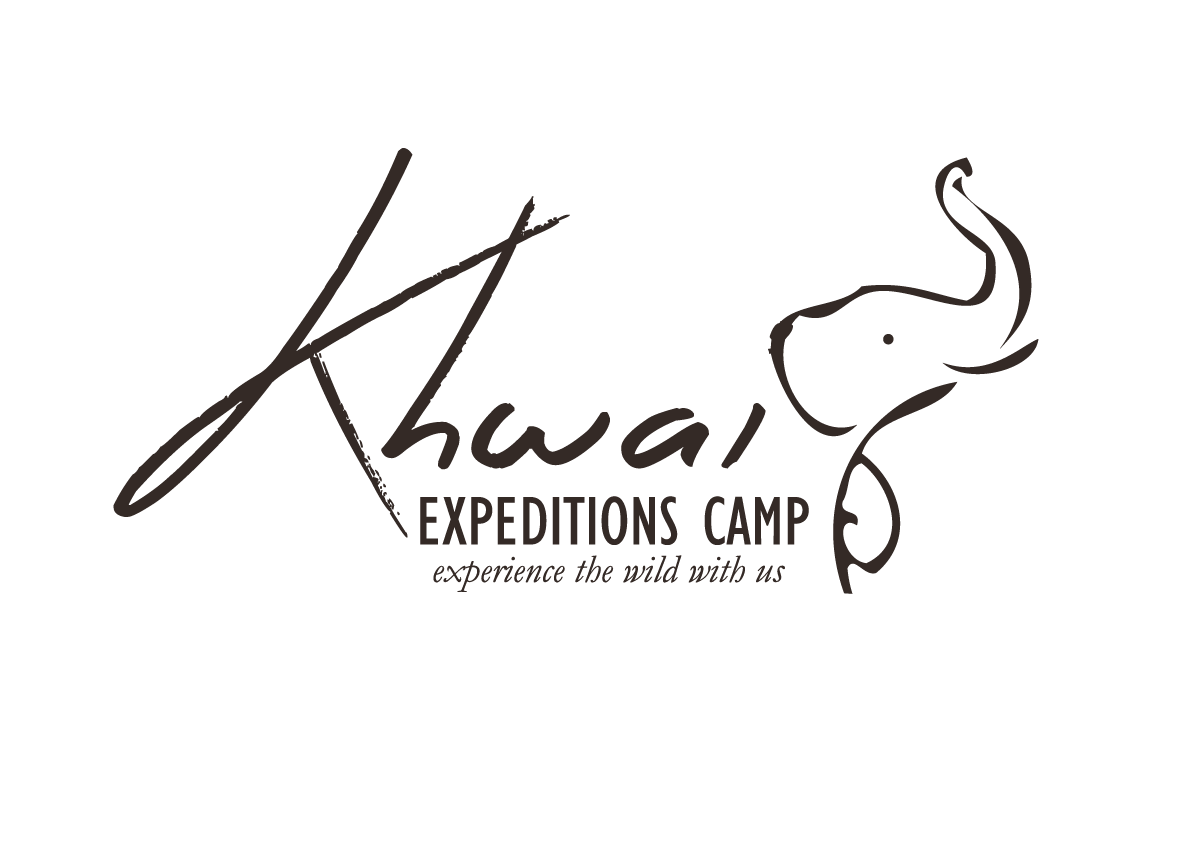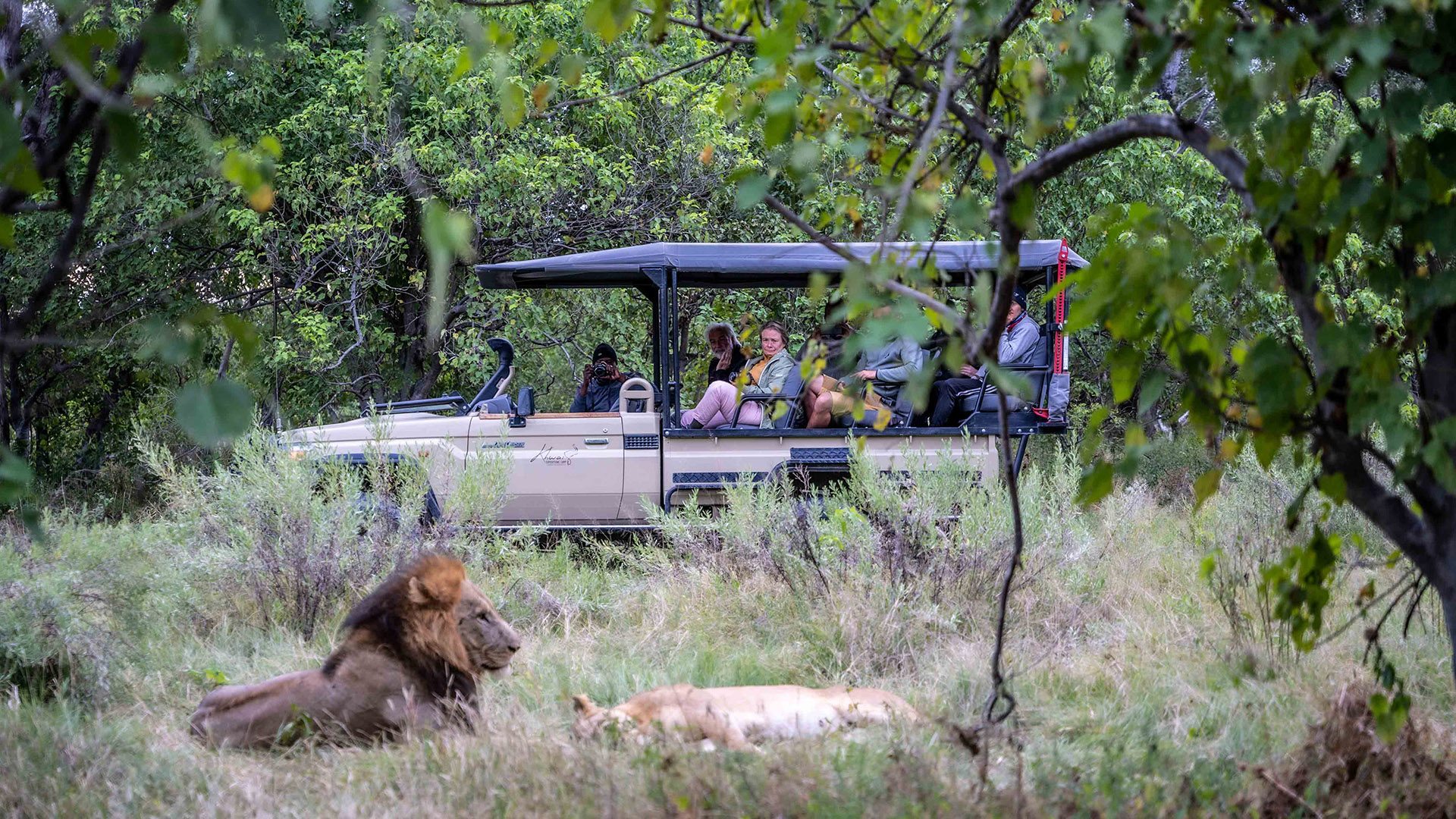Planning a Botswana safari is a dream come true for many travelers, offering an unparalleled opportunity to experience Africa’s breathtaking wilderness and wildlife up close.
Understanding the cost of a Botswana safari is essential for planning, as it can significantly impact your overall experience. Botswana’s Okavango Delta is a premier destination for a luxurious safari experience, boasting stunning wetlands and a diverse array of wildlife.
Whether you’re a first-time visitor or a seasoned safari-goer, a trip to Botswana promises extraordinary landscapes, diverse ecosystems, and unforgettable encounters with iconic animals like elephants, lions, and hippos.
With 2025 around the corner, now is the perfect time to start planning your adventure to ensure you make the most of this bucket-list destination.
In this guide, we’ll walk you through everything you need to know about planning your Botswana safari in 2025, from the best times to visit and top destinations to budgeting and choosing the right accommodation.
Why Choose Botswana for Your 2026 Safari?
Botswana stands out as one of Africa’s premier safari destinations due to its commitment to conservation, diverse wildlife, and exclusive safari experiences.
Botswana’s Okavango Delta, with its stunning wetlands and diverse wildlife, is a key reason to choose Botswana, offering a luxurious four-day safari experience that includes game drives, mokoro excursions, and spa treatments.
Unlike some busier safari destinations, Botswana focuses on low-impact, high-value tourism, which means fewer crowds, more intimate wildlife encounters, and less environmental impact.
If you’re looking for a safari that offers pristine wilderness, minimal human interference, and a true sense of adventure, Botswana is an exceptional choice. Compared to East Africa and other safari destinations, such as South Africa or Zimbabwe, Botswana’s safari experiences are notably more exclusive and come with higher costs, reflecting its unique attributes and commitment to luxury.
Key reasons to choose Botswana for your 2026 safari
- Unspoiled wilderness: Botswana’s national parks and reserves, such as the Okavango Delta and Chobe National Park, are among the most pristine wildlife areas in Africa.
- Diverse ecosystems: From the wetlands of the Okavango Delta to the dry expanses of the Kalahari Desert, Botswana offers a wide range of landscapes to explore.
- Exclusive safaris: Botswana limits the number of visitors to its parks, ensuring a more personal and immersive experience with nature.
Best Time to Visit Botswana in 2026
The best time to visit Botswana depends on what kind of safari experience you’re seeking. Botswana’s climate is characterized by two distinct seasons: the dry season (May to October) and the wet season (November to April).
Botswana’s Okavango Delta is a prime destination during these times, offering luxurious four-day safari experiences with stunning wetlands and diverse wildlife.
Dry Season (May to October)
The dry season in Botswana, which spans from May to October, is widely regarded as the optimal time for game viewing. During these months, the arid conditions compel wildlife to gather around the remaining water sources, making it easier to spot a variety of animals.
This period is also prime for witnessing dramatic predator-prey interactions, as the sparse vegetation and dry landscape provide ideal conditions for predators to stalk their prey.
One of the standout destinations during the dry season is the Okavango Delta, a UNESCO World Heritage Site. Botswana’s Okavango Delta is a premier destination for a luxurious four-day safari experience, offering stunning wetlands and a diverse array of wildlife.
The delta’s water levels are at their peak, creating a lush oasis that attracts a plethora of wildlife. Exploring the delta by boat or mokoro (a traditional dugout canoe) offers a unique perspective and allows for close encounters with animals such as elephants, hippos, and crocodiles.
Chobe National Park is another must-visit during the dry season. Known for its massive elephant herds, Chobe offers exceptional game viewing opportunities. The park’s proximity to the Chobe River means you can enjoy boat safaris, where you’ll witness elephants swimming and other wildlife congregating along the riverbanks.
The dry season is also an excellent time to spot predators, such as lions and leopards, particularly in the Savuti region.
Overall, the dry season provides optimal conditions for game viewing, making it the ideal time to visit Botswana’s renowned national parks and reserves.
Dry Season (May to October
This is the peak safari season. The weather is cooler, and wildlife congregates around water sources, making animals easier to spot. June to August are especially good times to visit Botswana’s Okavango Delta, as the floodwaters arrive, creating a lush paradise.
October can be very hot, but it’s one of the best times for wildlife viewing, particularly in Chobe National Park and Moremi Game Reserve.
Wet Season (November to April)
Also known as the “green season,” this is the time when the landscape transforms into lush greenery. While it’s harder to spot wildlife due to dense vegetation, the wet season is ideal for birdwatching as migratory birds arrive.
You’ll also see newborn animals during this time, making it a great period for photographers. The wet season is also a more affordable time to visit, as many lodges offer reduced rates. Botswana’s Okavango Delta also transforms during the wet season, offering stunning wetlands and a diverse array of wildlife.
Consider booking your safari during the dry season if you’re looking for the best game-viewing opportunities, but don’t overlook the benefits of visiting in the wet season, especially if you’re after a quieter, more budget-friendly experience.
Botswana safari prices are generally lower during the wet season, making it an excellent option for those looking to save on costs.
Top Destinations for Your Botswana Safari
Botswana’s Okavango Delta is a premier destination for a luxurious safari experience, offering stunning wetlands and a diverse array of wildlife.
Botswana offers a diverse range of safari destinations, each offering a unique wildlife experience. Here are the top places you should consider including in your 2025 safari itinerary:
Okavango Delta
A UNESCO World Heritage site, Botswana’s Okavango Delta is a prime destination for a luxurious four-day safari experience.
Botswana’s Okavango Delta is a premier travel destination, offering a luxurious four-day safari experience that combines wildlife exploration with relaxation at high-end accommodations.
This vast inland delta is a lush maze of waterways, lagoons, and islands, providing the perfect habitat for a diverse range of wildlife, including elephants, hippos, crocodiles, lions, and leopards.
The best way to explore the delta is by mokoro (dugout canoe), which allows you to glide silently through the waters, observing animals up close without disturbing them. Xigera Safari Lodge, situated in the Okavango Delta, is a luxurious and innovative accommodation option renowned for its distinctive design, extensive African art collection, and sustainable features.
Chobe National Park
Chobe National Park is home to the largest concentration of elephants in Africa, making it a must-visit destination for elephant lovers.
The park’s proximity to the Chobe River means you can enjoy spectacular boat safaris, where you’ll witness elephants swimming, hippos basking, and crocodiles sunning themselves along the riverbanks.
Chobe is also a great place for spotting predators, such as lions and leopards, especially in the Savuti region.
Moremi Game Reserve
Located on the eastern side of the Okavango Delta, Moremi Game Reserve offers some of the best wildlife viewing in Botswana.
The reserve combines dry land and wetlands, making it home to a wide variety of animals, including the Big Five. Moremi is one of the best places to spot the elusive African wild dog, and it’s also a fantastic destination for birdwatchers.
Central Kalahari Game Reserve
For those seeking a more off-the-beaten-path experience, the Central Kalahari Game Reserve offers a stark, desert-like landscape with unique wildlife, including desert-adapted species such as oryx, springbok, and the black-maned Kalahari lion.
This area is less visited, making it ideal for travelers seeking solitude and a deeper connection with nature.
Types of Safaris Available in Botswana
Botswana offers a wide range of safari experiences, each catering to different interests and adventure levels. Whether you prefer a traditional game drive or something more unique, there’s a safari style for everyone. Botswana’s Okavango Delta is a premier destination for various safari experiences, offering stunning wetlands and a diverse array of wildlife.
Planning a personalized Botswana safari tour with experienced Africa Safari Experts is crucial to tailor the safari experience to meet your individual preferences and needs.
- Land-Based Game Drives: The most common safari experience, where you’ll travel in open-air 4×4 vehicles with a guide. Game drives typically take place in the early morning and late afternoon, when wildlife is most active.
- Mokoro and Boat Safaris: In the Okavango Delta, you can explore the waterways by mokoro (dugout canoe) or motorboat, getting up close to animals like hippos, crocodiles, and birds.
- Walking Safaris: For a more intimate and adventurous experience, walking safaris allow you to explore the bush on foot with a guide, learning about the smaller details of the ecosystem and tracking animals.
- Mobile Tented Safaris: Mobile safaris involve camping in the wilderness and relocating to a new site. These expeditions offer an authentic and immersive experience, led by professional guides who provide in-depth insights into Botswana’s wildlife and landscapes.
Understanding Botswana Safari Costs
Botswana is often considered one of the most expensive safari destinations in Africa, alongside Tanzania and Kenya. This is mainly due to the country’s high-end, low-impact tourism model, which prioritizes conservation and the welfare of wildlife.
The cost of a Botswana safari can range from $5,000 to $12,000 per person for a 7-night stay, reflecting the exclusivity and quality of the experience. Botswana’s Okavango Delta is a prime destination that exemplifies this model, offering luxurious accommodations and activities in a stunning wetland setting.
Several factors influence the cost of a Botswana safari, including the season, camp category, length of stay, mode of safari, and specific camp chosen. The peak season, which runs from mid-June to October, is the most expensive time to visit due to the high demand for game viewing. Luxury camps, which offer top-notch amenities and personalized services, are also more costly compared to budget-friendly options.
Despite the high costs, the experience is well worth it. Botswana’s commitment to conservation ensures that visitors enjoy pristine wilderness areas with minimal human interference. The low-impact tourism model results in fewer crowds and more intimate wildlife encounters, offering a truly unique and memorable safari experience.
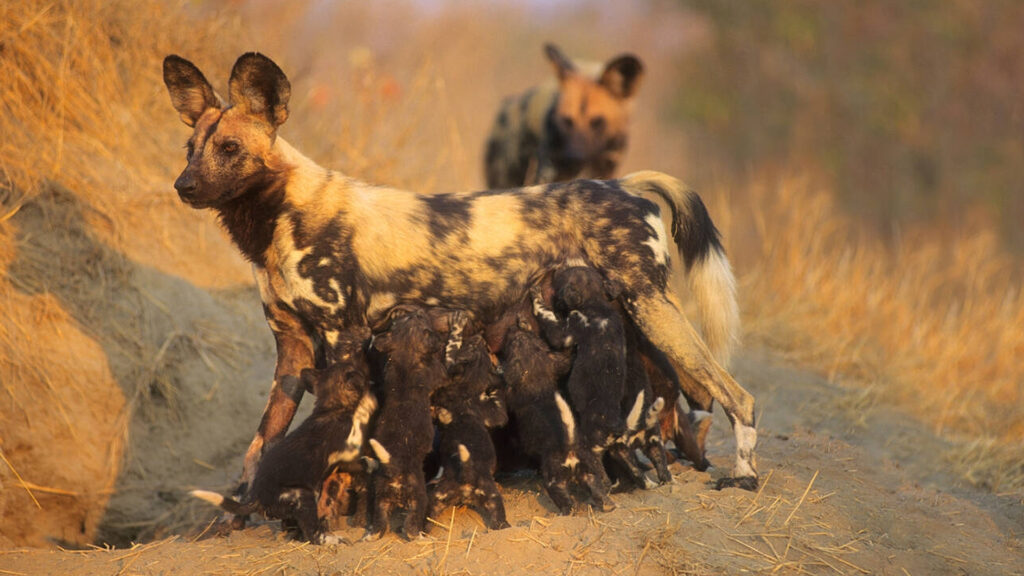
Guide to Botswana Safari Costs
The cost of a Botswana safari can vary significantly depending on the season and the type of accommodation you choose. Here’s a rough guide to help you understand the pricing:
- Peak season (June to October): $1,500-$2,000 per person per night. This is the best time for game viewing, but it’s also the most expensive.
- Shoulder season (April to June and November): $1,000-$1,500 per person per night. This period offers a balance between good game viewing and more affordable prices.
- Green season (December to March): $800-$1,000 per person per night. While wildlife is harder to spot due to dense vegetation, this season is ideal for birdwatching and offers lower rates.
Botswana’s Okavango Delta is a prime destination that influences the cost, known for its stunning wetlands and diverse wildlife.
The mode of safari also affects the cost. Fly-in safaris, which involve charter flights between camps, are more expensive than mobile camping safaris, where you move between campsites by road. Additionally, the specific camp you choose can impact the overall cost, with luxury camps being more expensive than budget-friendly options.
Choosing Your Safari Lodge or Camp
Botswana is renowned for its diverse range of safari accommodations, from ultra-luxurious lodges to rustic mobile camps. The country’s low-volume tourism model means that most lodges are small and exclusive, offering personalized service and a high level of privacy.
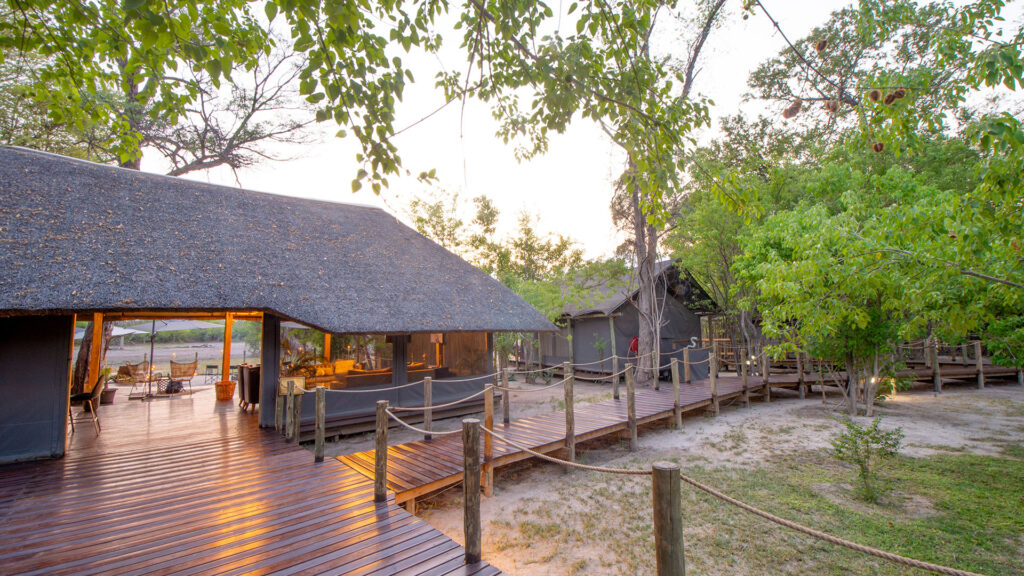
Botswana’s Okavango Delta is a premier destination, offering luxurious accommodations that provide an idyllic setting for both adventure and relaxation.
- Luxury Safari Lodges: These lodges are often situated in private concessions, offering top-notch amenities, gourmet meals, and guided game drives. They offer an intimate safari experience, with only a limited number of guests allowed at a time. Khwai Expeditions Camp offers a luxurious safari stay in Khwai, with access to the Moremi Game Reserve.
- Tented Camps: For a more immersive experience, tented camps are a fantastic option. These camps offer the adventure of sleeping under canvas with the comfort of en-suite bathrooms and well-appointed furnishings.
- Mobile Camping Safaris: If you’re looking for a truly authentic and adventurous safari, mobile camping is the way to go. You’ll move between campsites, sleeping in tents and enjoying meals cooked over a fire. This is a great way to experience Botswana’s wilderness while keeping costs down.
Planning Your Budget for a 2026 Botswana Safari
Botswana safaris are generally considered high-end, but the experience is well worth the cost due to the exclusivity and pristine nature of the environment. The country’s low-impact tourism model means fewer crowds and more personalized experiences.
Luxury Safaris: Expect to pay between $600 to $1,500 per person per night for luxury lodges, which include guided game drives, meals, and drinks.
Mid-Range Safaris: Mid-range lodges and camps typically cost between $300 to $600 per person per night. These options still provide excellent comfort and include activities.
Budget Safaris: For more budget-conscious travelers, mobile camping safaris or self-drive options can range from $150 to $300 per person per night, depending on the season and location.
Luxury Accommodation in Botswana
Botswana is renowned for its sophisticated and exclusive eco-lodges and camps, offering comfort and service in the heart of true wilderness. Many of these lodges and camps feature private plunge pools, massage parlors, and small gyms, ensuring guests can relax and rejuvenate after a day of adventure. Family-friendly accommodations and engaging kids’ clubs are also available, making Botswana an excellent choice for travelers of all ages.
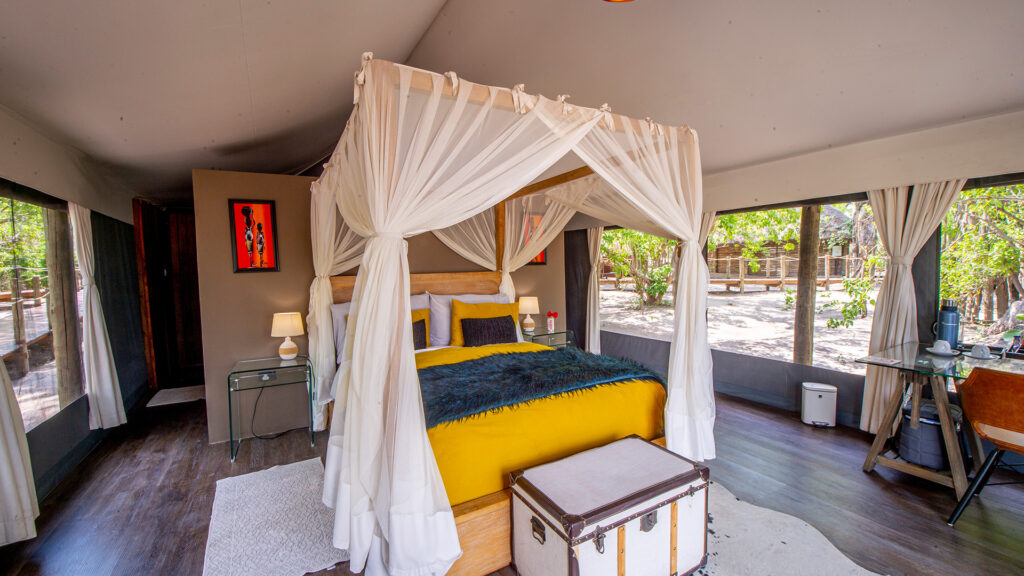
For those seeking the ultimate in luxury, consider staying at Belmond Savute Elephant Lodge in Chobe National Park. This lodge offers stunning views of the Savute Channel and is known for its exceptional game drives and wildlife sightings. Another top choice is Sandibe Okavango Safari Lodge, located on the edge of game-rich Chief’s Island. Here, guests can enjoy elegant accommodations and thrilling safari experiences.
Xigera Safari Lodge, located in the Moremi Game Reserve, is another standout, offering a unique blend of luxury and sustainability. The lodge features beautifully designed suites and a collection of African art, providing a truly immersive experience. For a more remote and intimate setting, Jack’s Camp, situated on the edge of the Makgadikgadi salt pans, offers a blend of vintage safari style and modern comfort.
Sable Alley in the Khwai Private Reserve is perfect for those looking to combine luxury with adventure. The camp offers spacious tents with stunning views of the lagoon, and guests can enjoy a range of activities, including game drives, walking safaris, and boat cruises.
These luxury lodges and camps provide an unparalleled safari experience, allowing guests to enjoy the best of Botswana’s wildlife and landscapes in comfort and style.
How to Get to Botswana
Arriving in Botswana is a crucial aspect of your safari planning process, as it will determine how easily and efficiently you can begin your adventure.
While Botswana is a sought-after destination for luxury safaris, the country’s air travel infrastructure is somewhat limited, and direct international flights into the main airport at Sir Seretse Khama International Airport in Gaborone are relatively rare.
Most travelers arrive in Botswana via a connecting flight from Johannesburg, South Africa, or Cape Town. Botswana’s Okavango Delta is a prime destination that travelers often aim to reach.
When planning your budget, consider the factors that influence the cost of a Botswana safari, such as the time of year and type of accommodation. Peak season rates are notably higher than during the green season, and the mode of safari can significantly impact overall expenses.
To help you plan your journey, here’s a comprehensive look at the various ways to get to Botswana, including flight options, entry requirements, and travel by road.
Travel to Botswana by Air
The majority of international travelers arrive in Botswana by air, typically flying into one of three main airports: Gaborone, Kasane, or Maun.
Once in Botswana, light aircraft are commonly used to access remote safari areas and camps, including Khwai Expeditions Camp, providing a scenic way to hop between safari locations and enjoy stunning views of Botswana’s national parks from the air. Botswana’s Okavango Delta is a prime destination accessible by light aircraft.
Main Airports in Botswana
Sir Seretse Khama International Airport (Gaborone)
Located 15 km from Botswana’s capital, Gaborone, this is the country’s main airport. However, many safari travelers prefer flying into Maun or Kasane, as Gaborone is farther from major safari destinations.
Maun Airport
Known as the “gateway to the Okavango Delta,” Maun Airport is the most popular airport for safari-goers. It provides easy access to Botswana’s Okavango Delta, a prime destination for a luxurious four-day safari experience, as well as Moremi Game Reserve and Khwai.
Kasane Airport
Located near Chobe National Park, Kasane Airport is an ideal destination for travelers seeking to explore northern Botswana and is also conveniently close to Victoria Falls.
Flights from Regional Hubs
Most travelers heading to Botswana fly from Johannesburg International Airport (O.R. Tambo) in South Africa, which offers frequent flights to Gaborone, Maun, and Kasane.
Cape Town International Airport also has flights to Gaborone and Maun, but does not serve Kasane directly. Using these regional hubs is the most efficient way to reach Botswana’s safari areas. From these hubs, travelers can easily access Botswana’s Okavango Delta, a prime destination known for its stunning wetlands and diverse wildlife.
Flights from Johannesburg International Airport:
Gaborone Airport: Air Botswana, Airlink, and South African Express offer regular flights to Gaborone.
Maun & Kasane Airports: Air Botswana and Airlink provide flights from Johannesburg to Maun and Kasane, making these the most popular routes for safari travelers. Botswana’s Okavango Delta is a prime destination accessible from Johannesburg, offering a luxurious four-day safari experience with stunning wetlands and diverse wildlife.
Flights from Cape Town International Airport:
Gaborone Airport: Air Botswana offers flights from Cape Town to Gaborone.
Maun Airport: Airlink operates flights from Cape Town to Maun, providing an additional access point to the Okavango Delta.
Botswana’s Okavango Delta is a prime destination accessible from Cape Town, offering a luxurious four-day safari experience with stunning wetlands and diverse wildlife.
Pro Tip: It’s highly recommended to work with a tour operator who can assist with all transportation arrangements. They can ensure your flights, transfers, and accommodations are seamlessly coordinated, making your journey to Botswana stress-free.
Travel to Botswana by Road
While most travelers choose to fly into Botswana, it’s also possible to enter the country by road, especially from neighboring countries such as South Africa, Namibia, Zimbabwe, and Zambia.
Botswana has well-maintained border posts, and road travel can be an adventurous way to start your safari, particularly if you are on a self-drive tour. Botswana’s Okavango Delta is a prime destination accessible by road.
Botswana Border Posts
Below is a list of key border posts into Botswana and their opening and closing times:
If you plan to drive into Botswana, be sure to carry all the required documents, including valid vehicle registration, permits, and insurance papers.
Kazungula Ferry
The Kazungula Ferry was a unique border crossing between Botswana and Zambia, where travelers crossed the Zambezi River by boat. This scenic ferry ride was an experience in itself, offering stunning views of the surrounding landscape.
Now, since the Kazungula Bridge Development was completed and launched, cars can cross over without the need for the ferry.
Entry Requirements for Botswana
Before you travel, it’s essential to ensure you meet all the entry requirements for Botswana:
- You will need a valid passport with at least six months of validity remaining.
- Return Ticket: Proof of a return ticket is required.
- Visa: Citizens of certain countries will need a visa to enter Botswana. Be sure to check the visa requirements based on your nationality before traveling.
- Documents for Children: If you’re traveling with children under 18, you must carry a certified copy of their unabridged birth certificate and their valid passport. Additionally, if a child is traveling with one parent or no parents, an affidavit from the non-traveling parent(s) giving consent for the trip is required.
Pro Tip: If you’re traveling by road, make sure you have all your vehicle documents and permits in order, as these will be checked at border crossings.
Botswana’s Okavango Delta is a prime destination that travelers need to meet entry requirements for.
Getting Around Botswana: Light Aircraft and Transfers
Once you’ve arrived in Botswana, the most efficient way to travel between safari camps, especially in remote areas like the Okavango Delta or Khwai Concession, is by light aircraft. Botswana’s Okavango Delta is a prime destination accessible by light aircraft and transfers.
These small planes fly between the main airports (Maun, Kasane, and Gaborone) and the airstrips located near safari camps, making travel swift and offering stunning aerial views of Botswana’s incredible landscapes.
At Khwai Expeditions Camp, you’ll likely fly into Maun Airport, followed by a scenic charter flight to a nearby bush airstrip. From there, camp staff will handle your transfer, ensuring a smooth arrival at your luxurious safari camp.
Scenic Flights
The bonus of flying by light aircraft is the scenic flight experience, where you’ll get a bird’s-eye view of the Okavango Delta’s winding waterways, vast savannas, and rich wildlife. It’s an unforgettable way to begin or end your safari adventure. Botswana’s Okavango Delta is also a prime destination for scenic flights.
Getting to Botswana may require a bit of coordination, but the journey is well worth it. Whether you choose to fly into Maun, Kasane, or Gaborone or drive across one of the country’s scenic border posts, your Botswana safari promises a once-in-a-lifetime experience.
Start planning early to secure flights, transfers, and accommodations at Khwai Expeditions Camp, ensuring that every part of your adventure, from arrival to departure, is smooth and stress-free.
Planning Your Botswana Safari Itinerary
Planning a Botswana safari itinerary can seem daunting, but with the right approach, it can be a seamless and enjoyable process. Here are some tips to help you plan your perfect safari:
- Consider the time of year: The dry season is ideal for game viewing, while the green season is best for birdwatching and offers lower rates.
- Choose a camp that suits your budget and preferences: Luxury camps provide high-end amenities and personalized services, while budget-friendly options offer a more rustic and adventurous experience.
- Think about the length of your stay: The longer you stay, the lower the average nightly cost tends to be. A longer stay also allows you to explore multiple regions and enjoy a variety of activities.
- Plan your activities: Game drives, walking safaris, and boat cruises are popular activities in Botswana. Consider what you want to do and choose camps that offer these experiences.
Including Botswana’s Okavango Delta as a prime destination in your itinerary is highly recommended for its stunning wetlands, diverse wildlife, and luxurious accommodations.
Sample Botswana Safari Itineraries
Here are some sample itineraries to give you an idea of what to expect:
- 6-night Okavango Delta safari: Spend six nights at a luxury camp in Botswana’s Okavango Delta, enjoying game drives, walking safaris, and boat cruises. This itinerary offers an immersive experience in one of Botswana’s most iconic landscapes.
- 8-night Chobe National Park safari: Stay for eight nights at a luxury camp in Chobe National Park, with daily game drives and boat cruises along the Chobe River. This itinerary is perfect for elephant lovers and those looking to see a variety of wildlife.
- 10-night Botswana safari circuit: Combine a 10-night stay at luxury camps in Botswana’s Okavango Delta and Chobe National Park. This itinerary includes game drives, walking safaris, and boat cruises, providing a comprehensive safari experience.
These are just a few examples of what a Botswana safari itinerary can look like. With the help of an expert, you can create a customized itinerary that suits your preferences and budget, ensuring a memorable and fulfilling safari adventure.
Safari Circuits and Routes in Botswana
Botswana offers a range of safari circuits and routes, each with its own unique characteristics and attractions. These circuits can be tailored to suit individual interests and preferences, providing a comprehensive and unforgettable safari experience.
What to Pack for Your 2025 Botswana Safari
Packing for a safari requires careful consideration to ensure you’re prepared for the bush’s varying conditions. Here’s a checklist of essential items:
Neutral-colored clothing: Earth tones like khaki, brown, and green help you blend into the environment. Avoid bright colors and dark blue, which can attract tsetse flies.
Comfortable shoes: Sturdy, breathable shoes are essential, especially for walking safaris.
Layers: Mornings and evenings can be chilly, even during the dry season, so pack lightweight layers you can easily add or remove.
Sun protection: Bring a wide-brimmed hat, sunglasses, and high-SPF sunscreen.
Insect repellent: Mosquitoes and other insects can be an issue, particularly during the wet season.
Binoculars and camera: Don’t forget your binoculars for birdwatching and a camera with a good zoom lens to capture wildlife from a distance.
When preparing for your trip, consider Botswana’s Okavango Delta as a prime destination for a luxurious safari experience.
Safety and Health on a Botswana Safari
Botswana is generally a safe and healthy destination for tourists, but as with any travel, there are some precautions to take and considerations to be aware of to ensure a smooth and enjoyable safari experience.
How to Book a Botswana Safari
Booking a Botswana safari can be a complex and time-consuming process, but with the right guidance and support, it can be a straightforward and enjoyable experience. Here are some steps to follow:
Conservation and Responsible Tourism
Botswana is known for its commitment to conservation, and it’s important to be a responsible traveler while on safari. Choose eco-friendly lodges and camps that focus on sustainable practices, and always respect wildlife by keeping a safe distance. Botswana’s Okavango Delta is a prime destination that benefits from these conservation efforts.
You can also support local communities by purchasing local goods and services, which helps maintain the balance between tourism and conservation.
Final Checklist for a Successful Botswana Safari
Here’s a final checklist to ensure a successful and enjoyable Botswana safari:
- Research and choose a reputable tour operator: Ensure they have experience and positive reviews.
- Determine your budget and choose options that fit within it: Consider the time of year and type of accommodation.
- Choose your safari style and destinations: Decide between luxury lodges, tented camps, or mobile camping.
- Book your safari and read and understand the terms and conditions: Clarify any doubts with your tour operator.
- Ensure you have all necessary vaccinations and medications: Consult with a healthcare provider.
- Pack accordingly: Include comfortable clothing, insect repellent, sunscreen, and other essentials.
- Bring a camera and binoculars: Capture the stunning scenery and wildlife.
- Be respectful of the environment and wildlife: Follow all safety guidelines and instructions from your tour operator.
By following this checklist, you’ll be well on your way to a successful and unforgettable Botswana safari experience.
Final Thoughts on Planning Your Botswana Safari for 2025
A Botswana safari is a once-in-a-lifetime experience, offering unforgettable encounters with some of the world’s most incredible wildlife in one of Africa’s most pristine wilderness areas.
Whether you’re exploring the Okavango Delta by mokoro, witnessing the elephant herds of Chobe, or discovering the unique landscapes of the Kalahari, your 2025 safari promises to be an adventure of a lifetime.
Start planning now, as Botswana’s exclusive safari lodges fill up quickly, especially during peak season. By booking early and considering the best time to visit, your ideal safari experience in Botswana can become a reality. Botswana’s Okavango Delta is a prime destination to consider for its stunning wetlands, diverse wildlife, and luxurious accommodations.
